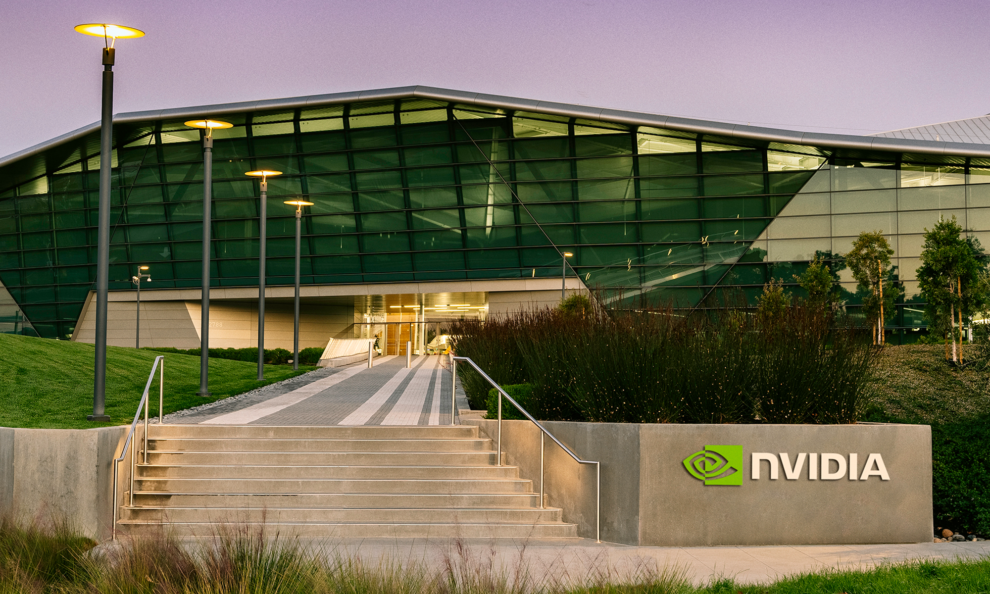Management’s comments suggest Nvidia’s sales growth won’t stay like this forever.
Nvidia (NVDA 3.81%) has been one of the biggest beneficiaries of the booming spending on artificial intelligence (AI) development. Its graphics processing units (GPUs) are a key piece of infrastructure for training and running large language models, the backbone of generative AI. Big tech companies like Alphabet (GOOG 0.88%) (GOOGL 0.79%) and Meta Platforms (META -0.05%) are spending billions of dollars to get their hands on as many Nvidia GPUs as possible right now.
That’s been great for Nvidia and its shareholders. Sales more than tripled in its fiscal first quarter, reaching a record $26 billion in total revenue. But that kind of growth can’t last forever.
Analysts expect more modest sales growth of “just” 38.4% next year. But some comments from Nvidia’s biggest customers suggest that number might be too high.

Image source: Nvidia.
Nvidia’s biggest customers just admitted they’re overspending on AI
While Nvidia has seen its profits soar as a result of all the AI spending, the same isn’t necessarily true of a lot of its biggest customers. A step up in capital expenditures like those required to build AI data centers can be a crunch on cash flow. That’s especially true if those investments don’t produce an immediate impact on revenue.
That’s the challenge for cloud providers that rent computing infrastructure to developers. The three largest cloud providers are Microsoft, Amazon, and Google. If a developer comes to one of them and needs access to compute power they don’t have, it will go to one of its competitors. As a result, they need to build data centers fast enough amid the current AI boom to ensure when a new customer comes to them, or an existing customer asks for more capacity, they can serve them.
Alphabet CEO Sundar Pichai made this clear when asked about spending on AI during the company’s second-quarter earnings call. “I think the one way I think about it is when we go through a curve like this, the risk of under-investing is dramatically greater than the risk of over-investing for us here,” he told analysts. In other words, he’s intentionally overspending right now to ensure he gets as many customers as possible. Microsoft and Amazon are likely taking a similar approach.
Meanwhile, Meta Platforms is building its own data center capacity to support its AI development. CEO Mark Zuckerberg has ambitions of turning Meta into the leading AI company in the world. And that requires having the infrastructure in place before the company’s software is ready for training and deployment.
“It’s hard to predict how this will trend multiple generations out into the future, but at this point I’d rather risk building capacity before it is needed, rather than too late, given the long lead times for spinning up new infra projects,” he said during Meta’s second-quarter earnings call.
His comments echo Pichai’s. Meta is spending now with the expectation that it will grow into its capacity. At some point, however, it will rightsize its data centers. At that point, it will significantly slow down its spending on servers and chips like Nvidia’s.
These comments hold a lot of weight (on Nvidia’s income statement)
The reason Nvidia shareholders should pay attention to everything Pichai, Zuckerberg, and a few other big-tech executives say about their AI spending is that the business has become heavily concentrated on those customers.
Twenty-four percent of Nvidia’s total sales in the first quarter came from just two customers. Between 60% and 70% of its revenue comes from just 10 customers, according to Seligman Investments analyst Paul Wick.
With all that revenue highly concentrated among just a handful of customers, a single change in the capital expenditure policy at one of them could drastically impact Nvidia’s results. If Alphabet or Meta decide to cut back on spending in a couple of years after aggressively building capacity, Nvidia will see its growth slow considerably.
The stock is in a precarious position, with Nvidia shares trading at valuation multiples, with around 50x forward earnings and 40x enterprise value to revenue. If it continues to outperform management’s guidance and analysts’ expectations, the stock will continue zooming higher. But one quarter of poor results could send shares reeling. The comments from Alphabet and Meta suggest it may be only a matter of time before there’s a stark pullback in AI spending.
Randi Zuckerberg, a former director of market development and spokeswoman for Facebook and sister to Meta Platforms CEO Mark Zuckerberg, is a member of The Motley Fool’s board of directors. John Mackey, former CEO of Whole Foods Market, an Amazon subsidiary, is a member of The Motley Fool’s board of directors. Suzanne Frey, an executive at Alphabet, is a member of The Motley Fool’s board of directors. Adam Levy has positions in Alphabet, Amazon, Meta Platforms, and Microsoft. The Motley Fool has positions in and recommends Alphabet, Amazon, Meta Platforms, Microsoft, and Nvidia. The Motley Fool recommends the following options: long January 2026 $395 calls on Microsoft and short January 2026 $405 calls on Microsoft. The Motley Fool has a disclosure policy.












